Chicken-dropping manure is well known for enhancing soil fertility and promoting plant health. In this exhaustive guide, we will discuss the different benefits, methods of application, and factors to consider when using chicken manure as an organic fertilizer. Moreover, we will touch on the importance of chicken feces’ chemical composition, characterized by high nitrogen, phosphorus, and potassium levels, which are crucial for plant growth. Further, it will give insights into how raw manure can be composted correctly to make safe and effective fertilizers and what measures should be taken to avoid smell or contamination-related problems. Finally, after reading this article, readers will have a profound knowledge of ways of using chicken dung in their farming activities to realize good crop yield and healthy soils.
What is Chicken Manure Fertilizer?
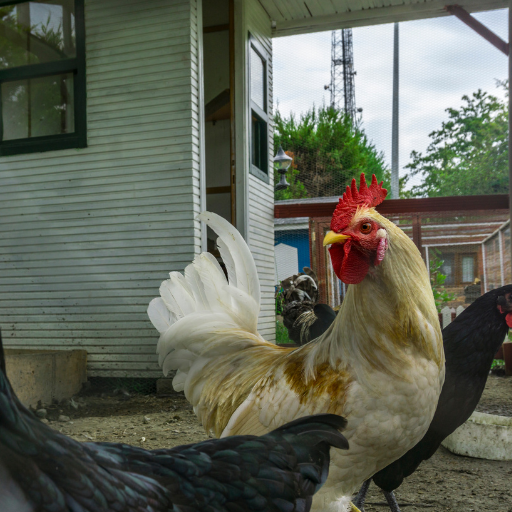
Chicken manure fertilizer is a type of organic soil amendment from poultry droppings. Rich in important elements such as nitrogen, phosphorus, and potassium, chicken manure is highly rated for its ability to improve soil fertility and sustain vigorous growth of plants. This kind of manure contains vital nutrients that are not only used by plants but also help to improve both the structure water retention capacity and microbial activity in the soil hence making it an excellent choice for improving gardens or fields. On the other hand, fresh poultry litter has lots of nitrogen; hence, it can be very strong, which may result in burning plants as well as harbouring diseases. thus, it needs proper composting before using it so as to eliminate pathogens and turn it into safe and effective fertilizer.
What does Chicken Manure Contain?
What can we find in Chicken Manure?
- Nitrogen (N): Normally, chicken manure contains 1.5%—3% nitrogen, which fosters leafy growth and general strength in crops. The nitrogen in this manure is available quickly after being composted.
- Phosphorus (P): It contains between 1 and 1.5 percent phosphorus, which is very important for root development and flowering. Energy transfer systems occur with the presence of Phosphorus through photosynthesis.
- Potassium (K): Potassium levels range from approximately 0.5 – 1%, enabling plant cells to synthesize proteins and starches and, in general, better disease resistance.
- Calcium (Ca): About 2% -4% of calcium in chicken dung assists cell wall structure and stability.
- Magnesium (Mg): Magnesium normally occurs in concentrations averaging between 0.3% and 0.5 %; it forms part of chlorophyll and assists in photosynthesis.
Several others, such as copper, zinc, and sulfur, help improve the growth of plants and soil. The organic matter contained in chicken manure also enhances soil structure and water retention properties and promotes beneficial microbes to become more active. Proper composting makes These nutrients available to the plant while odor is minimized.
Why Use Chicken Manure in the Garden?
- Nutrient-Rich Composition: These include nitrogen (1.5% – 3%), phosphorus (1% – 1.5%), potassium (0.5% – 1%), calcium (2% – 4%) and magnesium (0.3 % – 0.5 %). They create a conducive environment for better growth, such as stronger root systems and healthier plants in general.
- Improved Soil Structure: It enriches the soil with organic matters, which promote air circulation and water absorption capacity. It also encourages favorable microbial activity, which enhances nutrient availability and, hence, improves soil fertility.
- Composting Benefits: Proper composting will help reduce pathogens and smell thereby allowing plants to access more nutrients from it; Organic matter break down into simple forms that can be absorbed by plants during this process.
- Enhanced Microbial Activity: This introduction of poultry litter into soils boosts up microbial diversity which is responsible for nutrient cycling and soil health respectively.
How does Poultry Waste Compare with Other Types of Manure?
Poultry waste is often considered to be the best form of manure as it has a higher concentration of nutrients, particularly macronutrients plants require for growth. As an instance, chicken droppings contain significantly more amounts of nitrogen (N), phosphorus (P) and potassium (K) compared to cow and horse dung. For example, normally, cow dung typically contains about 0.5% nitrogen, 0.3% phosphorus, and 0.5% potassium while chicken droppings provide ranges from 1.5%-3% nitrogen, 1 -1.5 % phosphorous, and 0.5%-1% potassium.
Apart from the nutrient content itself, other benefits can be seen in the organic matter that makes up chicken poo like improved structure as well as enhanced microbial activity within the soil system. Additionally, high calcium (2-4%) and magnesium (0.3-0.5%) in poultry waste promote the restoration of soil pH and general health conditions that benefit the entire soil ecosystem.
Chicken manure easily achieves a stable composting stage earlier than denser forms such as those made by cows or horses, making their nutrients quickly available for uptake by crops grown under them [30]. However,” during composting, there is need to carefully monitor the decomposition process so that precautions are taken against high ammonium levels and pathogens; thereby ensuring safe and beneficial use in gardens”.
How to Compost Chicken Manure
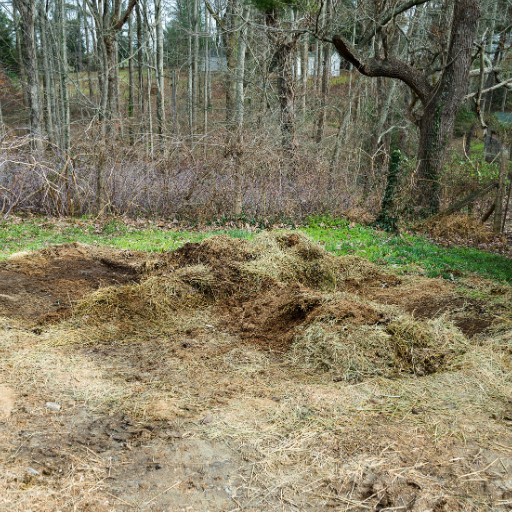
To compost chicken droppings, you need to have an optimal mix of carbon and nitrogen in the materials. Starting with hen dung and other things like straw or wood chips that are good sources of carbon, one will be good to go. The best way is to put them in a compost bin by maintaining 30:1 ratio of carbon to nitrogen so as to make it microbial active. It should be slightly wet compost like a squeezed sponge.
The heap needs regular turning about once every seven days for better air intake which induces faster decomposition and reduces odor. The heat range required to prevent harmful pathogens from surviving is typically 130-150 degrees Fahrenheit. Composting takes six months up to twelve months or even more if conditions are not right for decomposition. Properly done composted chicken manure must appear dark and crumbly with an earthy smell indicating its readiness as a nutrient rich soil amendment.
Steps on How to Safely Compost Chicken Manure
- Collect Materials: Gather chicken manure and carbon-rich bedding materials such as straw, wood shavings, or dry leaves. Ensure you have a balanced mix of carbon (brown materials) and nitrogen (green materials) to maintain an ideal carbon-to-nitrogen ratio of approximately 30:1.
- Build the Pile: Layer the collected manure and bedding in a compost bin or heap, starting with coarse material at the bottom for improved airflow and alternating with manure and carbon-rich materials.
- Moisten the Compost: Water the pile so that it remains as moist as a wrung-out sponge, but be careful not to exceed its water-holding capacity because that can result in anaerobic condition with a bad smell.
- Aerate Regularly: Turn the compost pile at least once weekly, introducing oxygen necessary for the microbial activities driving the decomposition process besides regulating temperature and odors.
- Monitor Temperature: Use a compost thermometer to monitor the pile’s internal temperature. Aim for a range of 130°F to 150°F over several days to ensure the destruction of pathogens. If the temperature drops, turn the pile to reintroduce air and restart the heating process again.
- Cure the Compost: Allow the compost to cure for several months following active composting stage. At this stage in curing, temperatures will stabilize and breakdown into fine stable soil amendment.
- Check for Maturity: Compost is ready to use when it is dark, crumbly, and has an earthy smell with no manure or bedding material that can be seen in it indicating complete decomposition and safety for gardening purposes.
The Benefits of Composted Chicken Manure
Composted chicken manure offers many benefits when used as a soil amendment. First, it is an exceptional source of macronutrients necessary for plant growth. Typically, composted chicken manure contains nitrogen (N), phosphorus (P), and potassium (K) in ratios of approximately 1.1: 0.8: 0.5, known as its NPK values. This nutrient-rich composition helps improve soil fertility and promotes vigorous plant growth.
Additionally, chicken manure compost enhances soil structure and water retention.The organic matter present in the compost increases air spaces in soils, which are friable, making them well-drained and more prone to root penetration. It also encourages beneficial microbes, resulting in more nutrient recycling throughout soils and, hence, higher fertility levels.
Another point is that chicken manure, which is composted, has advantages for the environment. Converting poultry waste into a useful soil enhancer reduces the quantity of waste that would otherwise need to be disposed of and lowers the chances of nitrogen being leached into water bodies, thus safeguarding against contamination of waterways.
This way, the nutrients in chicken droppings are also stabilized reducing the risk of nitrogen burn. Properly composted chicken manure is less likely to contain pathogens and weed seeds, making it a safer and more effective fertilizer for gardens and agricultural fields.
How Long does Chicken Manure Take to Decompose?
The time needed for composting chicken manure varies depending on several aspects such as the method used in composting and the conditions within which these materials are being done. However, generally speaking, chicken manure should undergo composting for at least six to nine months so as to guarantee full decomposition and eradication of pathogens. Optimal conditions, including a carbon-nitrogen ratio ranging between 25:1-30:1, moisture content (50-60%), and good ventilation through regular turning, enable faster rotting during the composting process, while with favorable circumstances; this procedure may take just 4 to 6 months. Nonetheless, it is better if you keep your manure longer because then it will produce a nutrient-rich stable safe soil amendment.
How to Apply Chicken Manure to Your Garden
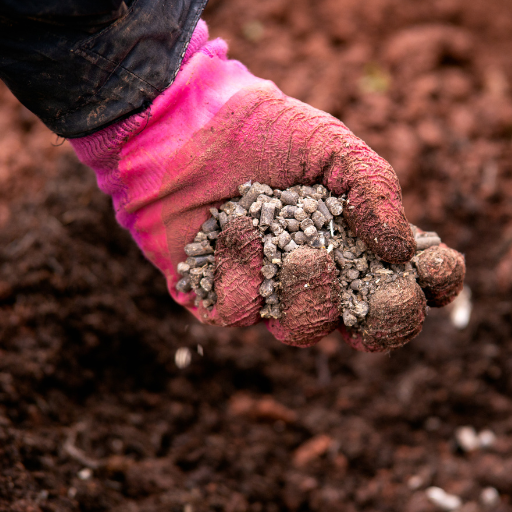
Before using chicken manure in the garden, ensure it has been composted adequately to avoid problems connected with raw manure such as pathogen contamination and nutrient imbalances. Firstly, spread the composted chicken manure over your garden soil evenly. For best results, till the composted chicken manure into the topsoil to a depth of 6-8 inches. It is recommended that chicken manure be applied at an approximate rate of 40 pounds per 100 square feet of garden area. This ensures appropriate distribution of nutrients without overburdening the soil. One can apply the composted manure during autumn to allow for time in which nutrients will have integrated into the soil before spring planting begins. After application, it is important to check and adjust future applications accordingly so as to maintain balanced soil health.
Methods of Applying Chicken Manure
- Surface Application: In this simple method, you spread the composted chicken directly on top of the soil surface within gardens and lawns where you do not want to disturb already-growing plants. The main things that you should pay attention to are application rate and timing; apply around 40 pounds per 100 square feet, and it’s ideal if done in the fall so that nutrients get enough time to move deep down in preparation for growing seasons.
- Incorporation: Another technique involves incorporating (tilling) composted manures into soils enhances their effectiveness by improving their structure or nutrient content in terms of physical structure. Incorporate about six inches deep, but do not go beyond eight inches when adding remaining refuse from animals like cows, sheep or rabbits (Kale et al., 2014). This method is especially helpful prior planting seasonal crops since it provides immediate access to nutrients by new emerging plants only.
- Compost Tea: Advanced methods entail making a highly nutritious liquid fertilizer called “compost tea” from chicken manure. This solution may be directly applied to plant roots or as a foliar spray. To prepare compost tea, steep 1 part composted chicken manure in 5 parts water for 24-48 hours, stirring occasionally. Strain the mixture and use it within 24 hours for the best results. This technique provides balanced and readily available nutrients promoting plant growth and health.
How Much Chicken Manure Should You Use?
The amount of chicken manure you should use greatly depends on your soil type and the crops you are growing; however, there are general rules to follow. Usually, about 20 pounds per 100 square feet is recommended for surface application, providing essential macro and micronutrients. For incorporation into your garden soils, one common recommendation is to add about 1-2 inches of compost deep into the top six (6) to eight (8) inches of soil so that nutrients evenly distribute in an area with uniform fertility levels (Haynes et al., 2009). Depending on soil test results and crop demand, approximately two to four tons per acre usually suffice for major agricultural uses (Kale et al., 2014). Always prevent nutrient runoff by avoiding overapplication, as this can damage plants.
When to use chicken manure for best results
Therefore, it is essential to apply the manure at the appropriate moments so that its benefits are obtained and any possible harm to plants is reduced. Chicken ($1) manure should be applied at least 120 days before the cropping date in case crops come into direct contact with the soil and 90 days before harvesting crops that do not touch the soil directly. This time frame allows enough composting of manure, during which nutrients are incorporated into the soil thereby minimizing cases of infection by pathogens. For instance, if you plan to plant next spring, you must have spread your manure last fall so that it decomposes over winter. Moreover, incorporating chicken ($1) manure into soil towards the end of the growing season helps replenish soil nutrients for subsequent planting seasons. To suit your specific soil and crop requirements, always conduct tests on the soils to determine how much and when these manures should be applied.
Using Fresh Chicken Manure
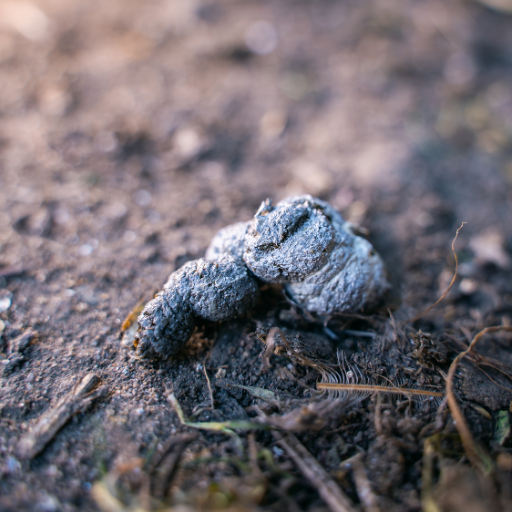
Using fresh chicken manure in the garden presents challenges because it contains too much nitrogen and may contain pathogens. Applying fresh chicken manure can result in a root burn because excess nitrogen will harm plants. Apart from this, one should note that using fresh manure carries risk of contamination with such pathogens as Salmonella or E.coli if the composting process did not occur. Essentially, new chicken dung must be decomposed through composting to allow it rot down and stabilize. Composting makes the manure less hazardous by breaking it down and adjusting its nutrient levels thereby making it a safer and more effective soil conditioner for gardens. Therefore, when properly composted, it can be used on gardens as a rich organic fertilizer to support healthy plant growth.
Risks Associated With Using Fresh Chicken Manure
Using fresh chicken manure in the garden is fraught with risks related to its high nitrogen content and possible presence of pathogenic bacteria. Also, fresh chicken droppings are known to house diseases such as salmonellosis (from Salmonella), Campylobacteriosis (from Campylobacter spp.), and E.Coli infection (from E.coli). Additionally, excessive ammonia contained in un-decomposed poultry waste causes loss through volatilization that leads to reduction in overall nitrogen efficiency.
Chemically speaking, fresh dung has high uric acid levels, which lower the pH of soils, thus causing damage to plant roots. Unbalanced amounts like these cause scorching or burning due to heightened nitrogen levels hence interfering with normal growth patterns involved in proper development processes for plants. Consequently, proper composting is necessary before using any new chicken dung since appropriate procedures involve maintenance at prescribed temperatures by United States Environmental Protection Agency (EPA) guidelines from U.S. Department of Agriculture (USDA) between 55°C(131°F) and 71°C(160°F) for at least three out of four days to reduce pathogens.
Additionally, application of composted manure should follow pre-harvest intervals as stipulated by regulatory standards to ensure that any remaining pathogens have decayed to acceptable levels. To minimize contamination risks, a 120-day pre-harvest interval is often recommended for soil-contact crops and a 90-day one for non-soil-contact crops. Taking regular soil tests can guide in optimizing the quantity applied and limit potential negative effects on soil pH or nutrient content resulting from chicken litter application.
Good Practices with Fresh Manure Use
The use of fresh manure requires care in order to reduce potential risk while maximizing benefits. It should be noted that farmers should apply fresh animal waste during off season or at least ninety (90) to one hundred and twenty (120) days before crop harvest especially when they are in direct contact with the ground. In addition, incorporation of manure into the soil immediately after it has been applied helps minimize nutrient loss due to volatilization and runoff; thus enhancing nitrogen availability from it to plants. Additionally, over-application must be avoided by following the recommended rates based on soil test results, which may lead to nutrient imbalances and plant toxicity. Finally, buffer zones around water sources, frozen or saturated ground should be used when applying these fertilizers not to endanger the environment. Proper monitoring and matching based on field health and crop needs is vital for the sustainable utilization of fresh manure in agriculture settings .
How to Age Fresh Chicken Manure
Composting, which is another term for aging fresh chicken manure, is a delicate process requiring multiple steps that guarantee its safety and effectiveness when used as fertilizer. One should start by making a compost pile that involves mixing up chicken manures with carbon-rich substances like straw or wood shavings in the ratio of one part manure and two to three parts carbon material. This mix helps balance nitrogen content in the manure which is needed for efficient composting.
The compost pile should then be watered to maintain moisture at about 40-60%, equivalent to a wrung-out sponge. Any excess or insufficient hydration may hinder decomposition. A compost thermometer ought to frequently check the compost pile’s temperature whereby it should range between 130°F and 150°F, because this will help kill pathogens together with weed seeds effectively. After three days, such temperature level ought to be reached by a heap.
Another essential step is turning the compost pile after every few weeks for proper aeration and even decomposition. Normally, this process takes around three to six months, within which time temperature, moisture, and overall progress of decomposition are observed on the composted materials. If properly aged, chicken manure turns out dark colored, crumbly, and earthy smell indicating readiness for agricultural use.
In addition before applying in plants, it would then be recommended that finished test nutrient content of final composts and pathogenicity if any exists in them. It ensures that the manure has been well aged and is safe enough to promote soil fertility and plant healthiness when applied accordingly into farming activities.
Benefits of Chicken Manure for Soil and Plants
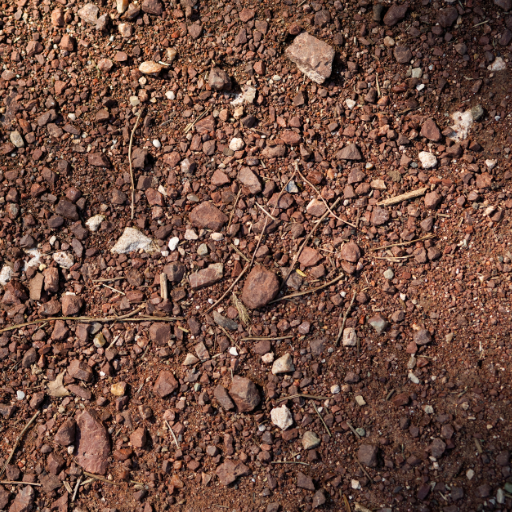
Chicken manure is characterized by high organic matter content and macronutrient profile, which makes it uniquely suited to enhancing soil structure. Organic matter in chicken manure improves soil aeration through promoting soil aggregation leading to better water-holding capacity. These modifications in turn allow for root penetration thereby creating conditions that are favorable to beneficial microorganisms in the entire soil environment.
Chicken manure has a high nitrogen content maintained at levels of about 1.1%—1.8%, which leads to increased microbial activity accelerating organic material breakdown. The phosphorus ranges primarily between 0.8% and 1.5 %, fostering the development of strong roots and assisting in nutrient uptake efficiency. Also, potassium is involved in disease resistance and general plant health, with its concentration being within the range of 0.5% -0.9%.
It is, therefore, necessary to stabilize the nutrient conditions and eliminate pathogens from chicken manure during composting processes to ensure its efficacy and safety on plants grown thereon. Carbon-to-nitrogen ratio within the range of 25:1-30:1 that maintains temperature from a low of 131°F up to a maximum of 170°F for more than three days are key parameters for effective composting process while ensuring frequent turning and monitoring will be required.
Lastly, an analysis of nutrient composition and pathogen presence should be conducted on the final compost to confirm compliance with agricultural standards regarding use of the manure before it is applied on farmland as these can raise any expectation for enhanced fertility when planting.
Boosting plant growth with chicken manure
One major advantage derived from using this type of fertilizers lies in their ability to enhance significantly the fertility level due to richness in nutrition contained therein; hence increasing agriculturally important nutrients that support plant growth like nitrogen, phosphorous and potassium among others (Aklilu et al 35). Nitrogen, high in chicken manure, promotes lush green foliage encouraging vigorous leafy growth. Phosphorous is available in the range of 0.8 to 1.5%. Subsequently, a strong root system is supported by it and efficient energy transfer leading to flowering and fruiting stages that will enhance the overall productivity of a plant (DeCostole et al., 44). In addition, potassium improves the overall health of plants such as resistance to diseases and environmental stresses. Also, organic matter found in chicken manure improves soil structure, increases water retention, and allows the development of beneficial organisms in soil for an improved plant environment (Poulsen et al., 72).
Is Chicken Manure Safe for All Plants?
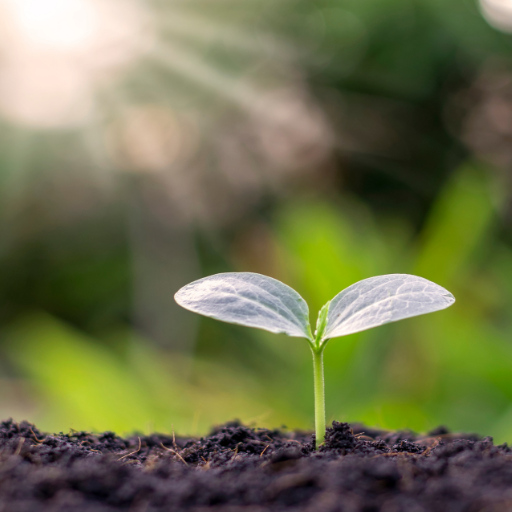
Chicken manure may not be safe for all plants despite its benefits on plant growth. Some plants, especially those highly sensitive to too much nitrogen, may suffer from nutrient burn when they come into contact with fresh chicken manure. Therefore, it is advisable to decompose the fertilizer before adding it in order to reduce nitrogen levels and minimize the potential threat of having pathogens in the soil. On the other hand, crops such as blueberries and azaleas which are acid-loving can do poorly due to high alkalinity content contained in chicken manure. Therefore, one needs to consider both the type of plant being fertilized and the condition of the material.
Can Chicken Manure Burn Plants?
Yes, improper use of chicken manure can cause plants to get burnt. Fresh chicken droppings contain a lot of nitrogen, resulting in nutrient burn that causes scorched leaves and dwarfing growth. Fresh manure also has great amounts of ammonia, which could destroy any plant’s roots. This makes it necessary that before using it for planting purposes it should be composted first to break down its available nitrogen compounds into safer forms for plants’ usage. This will also help eliminate disease-causing organisms while assuring minimal damage through burns by applying well- rottenized products.
How to Store Chicken Manure Safely?
Safe storage of chicken manure requires various crucial steps to maintain its usefulness as a fertilizer and prevent possible risks with this material. First, keep your manure under cover in a dry place where rain cannot wash away nutrients from them or contaminate them with waterborne substances through the leaching effects of rainfall. The storage area should have proper ventilation so as to allow enough air movement that contributes towards composting and control smell release rates. To keep off rodents and avoid contaminating nearby water systems with run-off; poultry waste must be kept inside covered containers or piles. You should avoid keeping it near human or animal houses to reduce the risks of infections associated with manure pathogens. Regularly turning the manure pile ensures that heat is evenly distributed and air circulation is maintained, facilitating efficient composting.
Dealing with Pathogens in Chicken Manure
Chicken manure contains harmful microorganisms which can be a health hazard without proper management. The major pathogens include Salmonella, E. coli, and various parasites. According to many sources, correct composting can kill these organisms as well. The temperatures should range between 130°F to 150°F (54°C–65°C) for three days during which the pile should be turned regularly for oxygen replenishment and equal distribution of warmth throughout its interior. During this phase of high temperatures, most pathogens are killed.
Aerobic composting would be better, preferably, since it ensures a sufficient supply of oxygen to further reduce the levels of these undesirable organisms. A compost thermometer is useful for monitoring internal temperatures to ensure that the heap stays within its desired limits. After the initial high-heat period, the compost should cure for an additional two to three months so that all potential pathogens are destroyed and any residual nutrients stabilize themselves.
It is similarly recommended to keep a carbon-to-nitrogen ratio (C:N) of about 25:1 to 30:1. This balance will help in the activities of microorganisms, which break down organic matter and kill disease-causing organisms. Consistently turning the compost heap every one or two weeks helps to enhance even decomposition and reduce pathogens. In conclusion, adopting these principles guarantees safety and efficacy of chicken manure for farming purposes.
Reference sources
- The Poultry Site
Article: “Chicken manure and crop by-products generates quality fertilizer without odor”
Summary: This University of Córdoba study highlights the effective use of chicken manure combined with olive grove waste to produce high-quality, odorless organic fertilizer. - Bio Conferences
Article: “Results of Practical Use of Fertilizers from Chicken Manure”
Summary: The paper reviews the benefits of using organic fertilizer made from poultry waste, emphasizing the role of biologically active treatments in enhancing its effectiveness as a soil improver. - NCBI (National Center for Biotechnology Information)
Article: “How Safe is Chicken Litter for Land Application as an Organic Fertilizer?”
Summary: This article discusses the environmental safety and cost-effectiveness of using chicken litter as an organic fertilizer, supporting its use as a sustainable method for soil enrichment.
Frequently Asked Questions (FAQs)
Q: What are the benefits of using organic chicken manure as a garden fertilizer?
A: Organic chicken manure is rich in nitrogen and other essential organic nutrients, making it an excellent choice for promoting plant growth. It adds rich organic matter to the soil, improving its structure and fertility, which is ideal for a vegetable garden.
Q: How should I apply chicken manure to my vegetable garden?
A: For best results, it’s recommended to use aged or composted poultry manure. Spread a thin layer of the manure across the garden bed and mix it into the soil. Be sure to wash your vegetables thoroughly before consumption to ensure safety.
Q: Is it safe to use chicken manure directly from the chicken coop?
A: Using chicken manure directly from the chicken coop is not recommended as it can be too strong and might burn plants due to high nitrogen levels. It’s best to compost the manure first or use aged manure instead.
Q: Can chicken manure be used for all types of plants?
A: Chicken manure is versatile and can be used for many types of plants, but it is especially beneficial for heavy feeders, such as leafy greens, which thrive on the rich fertilizer. However, it’s always a good idea to check specific plant requirements before application.
Q: What is the difference between granular fertilizer and chicken manure pellets?
A: Granular fertilizer is typically a synthetic product made from various chemicals, whereas chicken manure pellets are a natural fertilizer made from processed and compacted chicken poop. The manure is heated to kill pathogens, making it safe for use in organic gardening.
Q: How do I know if my chicken manure is composted properly?
A: Properly composted chicken manure should not emit a strong odor and should have a dark, crumbly texture. Composting typically involves maintaining a balanced mix of carbon-rich and nitrogen-rich materials and keeping the compost pile adequately moist and aerated.
Q: How does industrially dried chicken manure fertilizer compare to other types?
A: Industrially dried chicken manure fertilizer usually comes in a more refined form, such as pellets, which are easy to store and apply. This type of fertilizer retains the rich organic matter of raw poultry manure but is safe to use and free from pathogens.
Q: Can I use chicken manure along with other natural fertilizers like worm castings fertilizer?
A: Yes, combining chicken manure with other natural fertilizers like worm castings can create a nutrient-rich environment for plants. These mixtures provide a balanced spectrum of nutrients and enhance the soil structure, benefiting your lawn and garden.
Q: What precautions should be taken when using chicken manure as an organic fertilizer?
A: Wear gloves and wash hands thoroughly after handling chicken manure. Never use fresh manure on edible plants close to harvest time to reduce the risk of contamination. Always store manure away from water sources to prevent runoff and environmental contamination.






